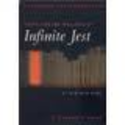-
About
- About Listly
- Community & Support
- Howto
- Chrome Extension
- Bookmarklet
- WordPress Plugin
- Listly Premium
- Privacy
- Terms
- DMCA Copyright
- © 2010-2025 Boomy Labs

 Sunil Maulik
Sunil Maulik
Listly by Sunil Maulik
A list of the best novelists writing in English today, along with their elliptical, and sometimes obscure, prose

Wallace’s giant, non-linear novel begins with an answer to a question asked in Hamlet, and from there on out is filled to the brim with pages-long endnotes (some of which have their own footnotes), literary references, and film theory. In true postmodern form, the whole book is a huge comment on its own bookishness, giving you hints on how to read it in the text, and also in true postmodern form, it’s pretty hard to figure out everything that’s going on.

Pynchon’s masterpiece has been described as “literally an anthology of postmodernist themes and devices.” Containing over 400 characters and winding and weaving through a series of episodes, the novel is one of the most complex and linguistically interesting books of the period.

This is an indescribably beautiful book that unfolds like a nested puzzle of narratives inside of narratives. And, just when you think it's a schtick, you realize it's actually about something really important. Mitchell is one of the most skilled, versatile writers I've ever read.

Organized like a triptych, this book, whose many shifting scenes and characters are concerned with fallacy, mistaken identity, and forgeries — an extreme of the Holden Caulfield syndrome, as it were. Characters lose their names and gain others, dialogue may float unattributed, allusions abound.
Pale Fire is comprised of a 999-line poem called “Pale Fire”, written by the fictional John Shade, along with a couple hundred pages of commentary by his self-appointed editor, Charles Kinbote. An engrossing metafictional spiral into the increasingly deluded mind of an obsessive editor, the book is filled with literary mania, questionable motives, and endnotes that refer to and contradict each other.

Donald Barthelme plays with the brand names of our ideas. Barthelme’s work is rife with allusions, intertextuality, and a supreme disregard for the traditional (at the time, at least) form of the short story — stories may be just a few words, or several pages without a punctuation mark, or an accumulation of details that make the reader search for the plot themselves.

Labyrinths is aptly named — each story or essay is a maze of sorts, whether parabolic, linguistic, or full of thematic riddles. A great primer on the works of Borges, this collection is an essential on any postmodern shelf.

An intensely claustrophobic novel uses almost every trick in the book: multiple narrators, text in unusual places, insane typography, and copious footnotes. Another labyrinth both in form and story, deciphering the novel is a demanding job, and you feel sometimes as though it might just trap you inside forever.

This seminal work is a dizzying, disturbing book either about a woman who has gone mad, or about a woman who is the last woman on earth, or both. A stream of consciousness winding around boulders of myth and theory, this book is kind of unclassifiable.
A metafictional book, highly aware of its own book-ness, Acker’s most famous work is a veritable collage of styles, narratives, and storytelling tools, incorporating drawings, dream maps, visions and other artifacts into the text. It’s an incredibly complicated and difficult novel, but definitely worth your while.

This novel both parodies and rewrites the facts, histories and literary forms that concern it, starting Barth off on a long career of influential postmodern works.
